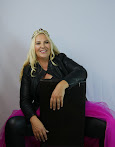A Recovering Perfectionist
Well I can say I am total guilty of being that perfectionist. I am not sure where along the line I became one but I know once I hit high school I felt a tremendous pressure to look a certain way, have certain things and be the best of everything I did so that I had value and worth. It doesn't help that I am super competitive. This is most likely how I ended up with a 7 page resume, a doctorate by the time I was 29 and more awards than you can count, because I wanted to be great!
It never feels good to be bad at something or someone tell you you're not good enough to do something. It can be embarrassing and make you feel quite vulnerable. Especially if this is said or done in front of other people. And for me working in a male dominated world, I felt I had to prove something being the youngest and only woman, so I pushed even harder to be best and my male counterparts did not really like the overachiever Julie making them look bad.
But I do have to say I am a recovering perfectionist. What do I mean by that? Well, nothing is more refreshing to me than to walk into a room, sit back and enjoy the moment. Now in my younger years that would never have happened but I have learned, I don't always have to be in charge, I don't have to be the best in everything I do, and I can let others achieve. Now don't get me wrong, recovering perfectionist Julie definitely still has moments. For example, if its something I have done for 20 years and I could do it better it's hard not to take the wheel and steer.
And let's be honest, we do wrap our identity in what we are good in. When COVID hit and my businesses were shut down, my speaking gigs were dry, my sports were on hold, I felt like a broken ship adrift wondering what do I do next. I too have attached my identity to the things I do well. And I thrive in chaos; the crazier the deadline, the crazier the moment, you want me on your team. I do very well under stress and this might go back to many years of playing sports and having to perform in intense situations.
If we want to look through the lens of science studies show that dopamine is a hormone that makes us feel good. Psychiatrist Gail Saltz, MD, who focuses on emotional well-being, says we can thank nature and nurture for this reality. "Culture is consumed with being an expert. Things we excel at, and therefore give us pleasure, cause the brain to release the neurotransmitter dopamine, which then gives us more pleasure, when you refuse to do anything you're not great at, what you're telling yourself is that you're only okay if you're perfect. That's going to lead to a lot of pain in life." —Aimee Daramus, PsyD. That is pretty powerful. She is saying we should try things we are not good at and fail. That is how we learn. I am not a great dancer but I'll do it for fun. I am not great at art, but I still try because why not, and the list goes on and on.
I think the lesson here to learn is, life is hard enough. If we expect ourselves to be perfect it's going to get a lot tougher and we will see a lot more failure because life can't be perfect and you can't be perfect, and I am here to give you permission to be unperfect. Feel free to join my club, the recovering perfectionist.




.jpg)

Comments
Post a Comment